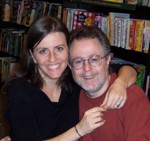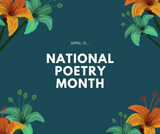 If you’ve been following the success of Rebecca Skloot’s new book, The Immortal Life of Henrietta Lacks, you might know that Skloot was recently interviewed on NPR’s Fresh Air, that her book is on The New York Times bestseller list and that reviewers are uniformly gushing about it. Take Dwight Garner, who, in a New York Times review, wrote that while he was reading the book he had to put it down on occasion. “Ten times, probably,” he writes. “Once to poke the fire. Once to silence a pinging BlackBerry. And eight times to chase my wife and assorted visitors around the house, to tell them I was holding one of the most graceful and moving nonfiction books I’ve read in a very long time.”
If you’ve been following the success of Rebecca Skloot’s new book, The Immortal Life of Henrietta Lacks, you might know that Skloot was recently interviewed on NPR’s Fresh Air, that her book is on The New York Times bestseller list and that reviewers are uniformly gushing about it. Take Dwight Garner, who, in a New York Times review, wrote that while he was reading the book he had to put it down on occasion. “Ten times, probably,” he writes. “Once to poke the fire. Once to silence a pinging BlackBerry. And eight times to chase my wife and assorted visitors around the house, to tell them I was holding one of the most graceful and moving nonfiction books I’ve read in a very long time.”
The reviews are that good. You could call Skloot lucky, but that belies the fact that she spent ten years researching her book. If there’s luck at play, it’s in Skloot’s genes. She’s the daughter of Portland poet, memoirist and two-time PNBA book award winner Floyd Skloot. We emailed with the elder Floyd last week. He is one proud papa. He had just broken the news to “Becca” that she was #7 on PNBA’s Bestseller List. As they were speaking Rebecca found out she would debut at #5 on the NY Times bestseller list. “It’s so thrilling!,” Floyd wrote. “And I’m happy beyond measure about her success–she worked 10 years on this book with commitment, passion, integrity, and produced a brilliant work. But that readers are seeing it, and embracing it–that doesn’t always follow, and I’m overjoyed.”
Floyd was reluctant to speak for his daughter or to take her spotlight, but he tells us that she was born in Springfield, Illinois. When she was eleven, the family moved to Portland, where she went to middle and high school. She graduated from Portland’s Metropolitan Learning Center at 16. She then took courses at Portland Community College while working for several years as a veterinary technician (her childhood dream had been to become a veterinarian). Rebecca first heard about Henrietta Lacks and the HeLa cells in a biology class at PCC.
She eventually moved to Ft. Collins, Colorado to study in Colorado State University’s pre- veterinarian program, graduating with a major in biology. Floyd says it was there, “while satisfying a language requirement by taking creative writing classes, that her interests in science and writing coalesced.”
Rebecca became a science journalist, publishing in big venues like The New York Times Magazine and in O, The Oprah Magazine, all the while working on Lacks’ story, and the history of cellular research. Lacks was a poor Southern tobacco farmer who died of cervical cancer in 1951. Her cells were taken without her knowledge and the HeLa line, as they’re called, have become essential to scientists researching cancer and have been used to help cure polio. All the while, the Lacks family had no idea this was happening.
Rebecca was characteristically dogged in getting the Lacks family to talk with her. She called Henrietta’s daughter every week for months and months. When they finally did get to know each other, they became friends, which became part of the story. Rebecca interviewed dozens of Lacks’ friends and cousins and other family members, piecing together Lacks’ story. “I felt such a duty to tell the story and tell it well and do justice to all sides of the story,” Skloot told the LA Times.
Floyd says nothing Rebecca does surprises him. “It delights me, as she has always done, but doesn’t surprise me.”
As we know at PNBA, Floyd is also both successful and prolific, though under the radar compared to Rebecca. He says he just finished a new collection of poems, which he sent to Tupelo Press, which published his PNBA-award-winning poetry books, Approximately Paradise and Selected Poems: 1970-2005. His new work is his seventh full collection of poems. Floyd is also working on new essays that will lead to another memoir about what he says is his usual mix of subjects—”memory, illness . . . reading and communication.”


